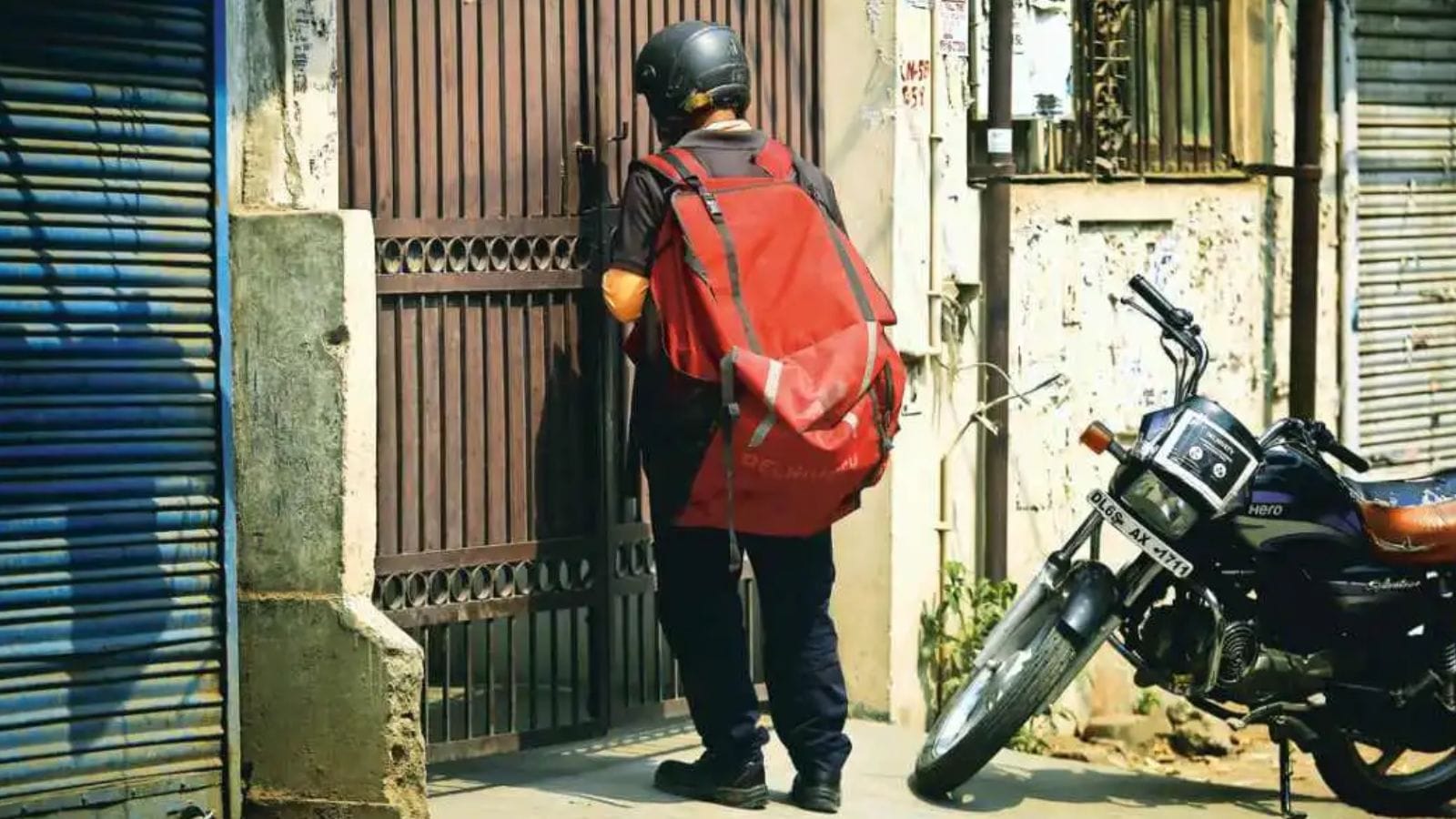
Dec 14, 2024 15:00 IST First published on: Dec 14, 2024 at 15:00 IST
2024 saw the race between platforms intensify to offer the shortest possible delivery times with Zomato-acquired BlinkIt and competitor Zepto announcing 10-minute food delivery apps within the same week. This follows Swiggy’s October announcement of its 10-minute variant Bolt. Neither is this quick commerce strategy limited to food delivery platforms; in December, Amazon India confirmed its entry into the race with a new service for delivery of goods within 15 minutes.
This intensification comes with reports of worrying practices from some of these platforms. In June, the Commission of Food Safety in Telangana raided BlinkIt’s warehouse and reported a lack of basic hygiene, infested food items, and food handlers lacking medical fitness and food safety certifications. Zepto, especially, has been under the media scanner this year, with a customer finding worms in February, and a severed human thumb in June. Zepto’s issues are not limited to food safety in its inventory, equally concerning are its work practices. In December, a Reddit post alleged that Zepto employees were being worked in 14-hour shifts, with some meetings scheduled as late as 2 am. The post alleged that overworked technology workers resorted to substance abuse to stay awake, and an alleged heavy attrition rate. After this post, Zepto’s CEO took to social media to insist he has nothing against “work-life balance” while not addressing the specific allegations.
Issues with Zepto’s labour practices are, of course, not confined to its formal employees but extend to its unrecognised employees, the so-called “delivery partners.” In August, a man called Dinesh from Hyderabad joined Zepto as a delivery partner, and documented his experiences, observations, and insights on social media. His observations revealed a typical yet deeply concerning trend in gig work: Variations in earnings, workplace inadequacies like lack of seating and water facilities, technical difficulties, and vagaries of algorithmic management.
The incidents at Zepto are symptomatic of intensified exploitation, which becomes worse when waged work is kept outside the ambit of labour regulation, as in the case of gig work in India’s platform companies. Without regulation, there is no incentive, let alone accountability, for a “work-life balance”, which is after all not a question of work culture but rather of economics: How much exploitation can a company get away with? As the state fails to recognise a formal employee-employer relationship, this conversation is not on the agenda, to the benefit of companies.
Gig worker rights advocates began the year cautiously optimistic, at the heels of the landmark Rajasthan Platform-Based Gig Workers (Registration and Welfare) Act. As many observers, including us in a previous article, pointed out — the law had fundamental weaknesses in not recognising the employer-employee relation between platform companies and gig workers, but its hypothetical rules held possibilities for minimal regulatory oversight. These rules, which would make the law operational have yet to be created more than a year later, after the defeat of the Rajasthan Congress which has left this law, effectively, in limbo. General elections were another moment for regulatory discourse, this time at the central level, with gig workers finding mention in party manifestos such as those of the Indian National Congress and the CP(M), who promised regulations, and the BJP, which limited its promises to including gig workers on the eShram portal.
The Congress government in Karnataka released a draft Bill for public comments, modelled largely on the Rajasthan social security law for gig workers, but with a few substantive changes which could provide workers with avenues for redressal in the event of unfair terminations, health and safety violations and other grievances. However, after strong pushback from platform companies, the Bill failed to be introduced in the state assembly’s monsoon session. There is no indication yet that it will be discussed in this month’s winter session either.
most read
A similar bill released for comments in Jharkhand too is yet to be introduced in the Assembly. The Telangana Gig and Platform Workers Union has continued to pressure the Telangana Congress to make good on its electoral promises of legislation for gig workers’ rights, yet no draft bills have been released to the public yet. While regulatory discourses at the state level have largely been limited to conversations about tripartite welfare boards and social security legislation, the central Ministry of Labour and Employment has further limited the scope of discussion at the federal level to the eShram portal and the Code on Social Security, with Ministry sources reiterating that gig workers are outside the “traditional employer-employee relationship.”
2024 saw a growing number of platform companies endangering the lives of workers to complete deliveries in the shortest possible time, reports of human rights violations in Amazon warehouses, and women gig workers protesting unfair terminations and launching a digital strike on Diwali with clear demands for labour regulation. Three major survey reports released this year, Prisoners On Wheels, The RIGHTS Survey, and Impact of Extreme Heat on Gig Workers have revealed empirically that the worst stories of gig workers’ exploitation are the norm. A lack of political will and subservience to business lobbyists has made this a year of empty promises and negotiations over the most minimal rights, even as it becomes increasingly clear that the exploitation spiral of the gig economy can only be addressed with the legal recognition of workers’ employment by platform companies and concrete regulation.
Zaidi is an MA student at the School of Communication, Simon Fraser University, Canada. Guha is an assistant professor at the Ashank Desai Centre for Policy Studies at IIT.
Why should you buy our Subscription?
You want to be the smartest in the room.
You want access to our award-winning journalism.
You don’t want to be misled and misinformed.
Choose your subscription package


